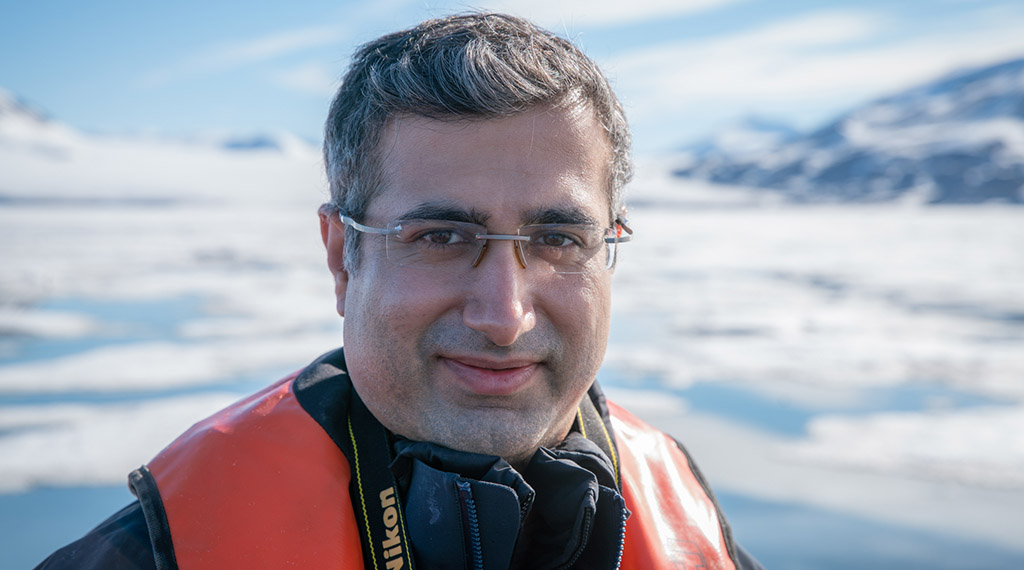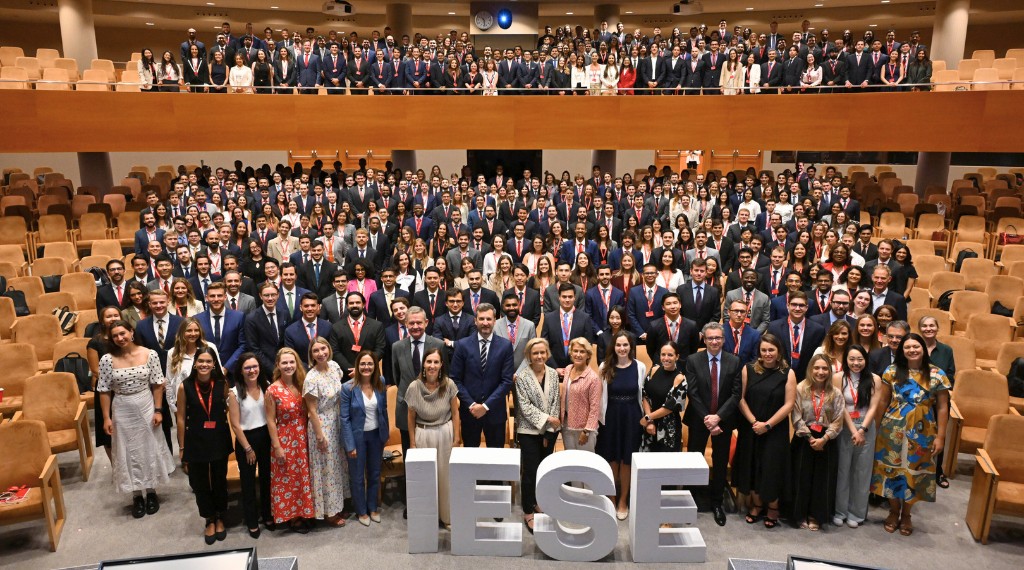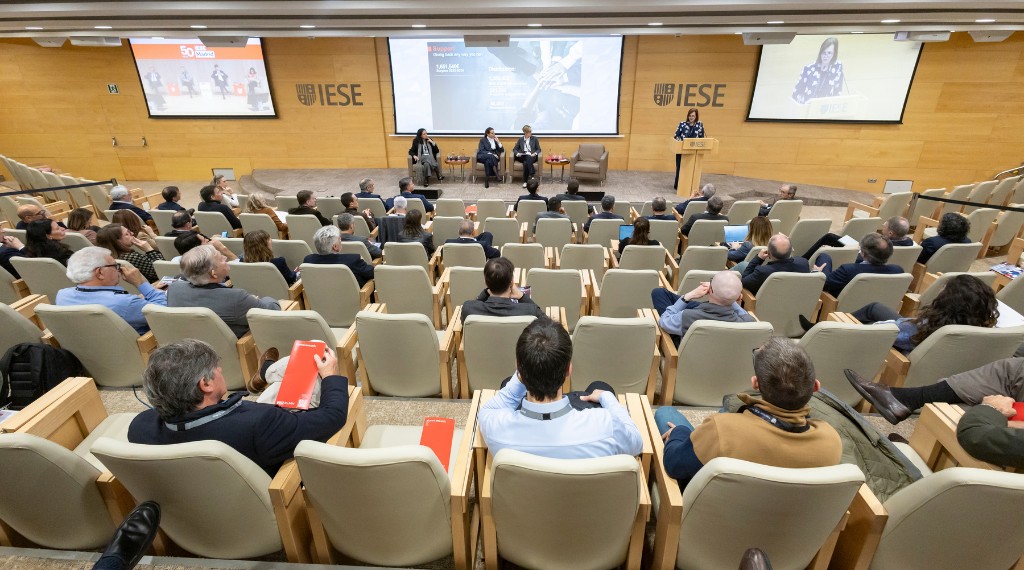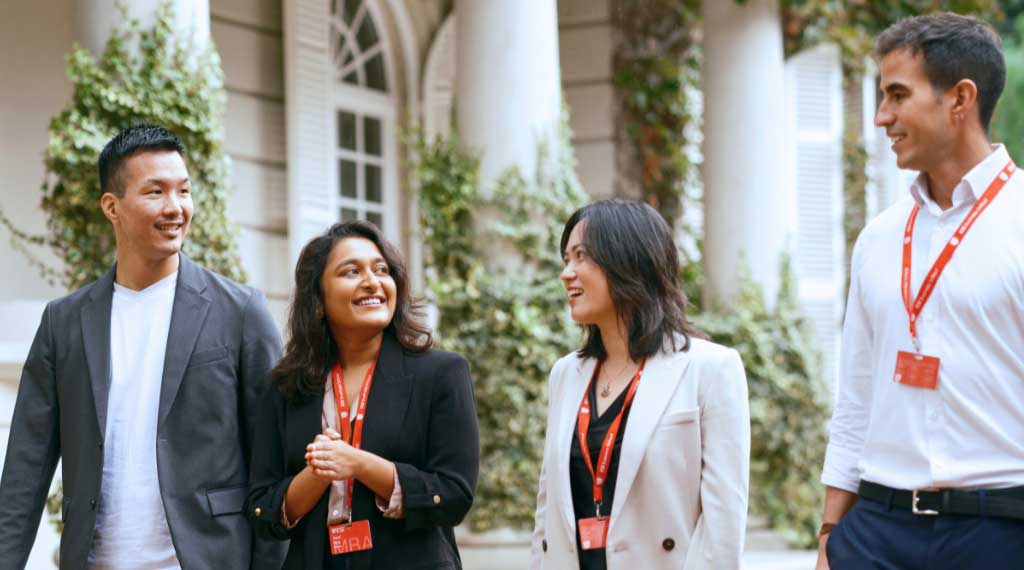Stories
“My generation has to be the turning point generation ”
After expedition to Arctic, IESE MBA looks to bring climate change activism into consulting career
Suhas Taneja (MBA ´14) during his recent expedition to the Arctic.
Photo: Trenton Branson
November 7, 2019

Suhas Taneja, a New York-based mergers and acquisitions consultant, may seem like an unlikely climate change activist. But amid growing evidence that the Earth is at a tipping point, the IESE MBA recently went on an expedition to the Arctic and came back more determined than ever to do his part for the planet.
Originally from India, Taneja graduated with a degree in electrical engineering from the University of British Columbia and completed his IESE MBA in 2014. He then began working in the Transaction Advisory Services practice of Ernst & Young in London and now New York.
“I’m looking to incorporate climate change activism into my career path,” says Taneja. “I think we all have to incorporate being stewards of the pale blue dot into our daily lives and our work, whatever that may be.”
The Arctic is in many ways the epicenter of global warming, estimated to be heating up at around twice the rate of the global average. That means the polar region is feeling the impact of climate change more tangibly than anywhere on Earth: ice sheets and glaciers are melting, sea levels are rising and polar species such as walrus and reindeer are seeing their habitats threatened.
I think we all have to incorporate being stewards of the pale blue dot into our daily lives and our work.
For Taneja, bearing witness to that shift is a powerful motivator. “Change is slow. But when you see it first hand, you’re able to take stock of it. You see the change in terms of billions of tons of ice,” he says. “Standing in front of a receding glacier, every single one of your senses is engaged. You never forget what you’ve seen, what you’ve felt. I want to be able to convey the impact of the change.”
Expedition combines training and experience
Taneja’s 10-day expedition was organized by the 2041 Foundation, created by explorer Robert Swan, who in the late 1980s became the first man to walk to both the North and South Poles unassisted. The foundation is dedicated to protecting Antarctica and the Artic, and to promoting recycling, renewable energy and sustainability. As part of those efforts, it runs a Leadership-On-the-Edge program that combines travel to the poles with leadership development, climate change training and sustainability education.
The expedition brought together a diverse group of 90 people – chosen from around 5,000 applicants – who ranged from C-suite executives and journalists to entrepreneurs and scientists. They work in fields as disparate as private equity and renewables technology.
For Taneja, that diversity was key, since searching for solutions to climate change requires a global, all-encompassing approach. “We were about 90 people from over 25 countries. Getting plugged into this network is invaluable,” he says. “The problems we’re facing are interconnected and multi-dimensional, and coming up with feasible solutions requires a diverse approach.”
The journey – which was made carbon neutral through the purchase of carbon credits — started in Oslo, Norway. Participants then flew to Longyearbyen, one of the northernmost inhabited cities on Earth, where they boarded a ship that took them to different locations around the Arctic.
The problems we’re facing are interconnected and multi-dimensional, and coming up with feasible solutions requires a diverse approach.
Personal and professional quest
As Taneja returns to New York, he is cultivating allies and translating his learning into action. He has continued to provide pro bono advice to small businesses and nonprofits, and has a particular interest in businesses that create sustainable models.
He is currently helping a green business, working with a company called Commit to Green that is pioneering biodegradable bags and trash liners in the U.S. The plastic-like bags are made out of vegetables and cornstarch, and take just 180 days to biodegrade in a commercial composting facility.
And in his daily work, inspired by his conversations with executives from various industries, he sees huge potential for incorporating environmental, social and governance (ESG) factors in M&A and investments. “Right now there’s some emphasis on the social and governance elements but not so much on the environment. But with the environment becoming a big part of the economic agenda and policies, the importance of it in dealmaking will rise.”
There is also a more personal facet. Taneja celebrated his 35th birthday on the expedition, and soon after he returned, his first child was born. Those events have given him a greater sense of urgency to act.
“I hate to think that my children and grandchildren will think that I left the world a worse place for them. My generation has to be the turning-point generation.”
All photos by Trenton Branson, Suhas Taneja and David Hone.






















